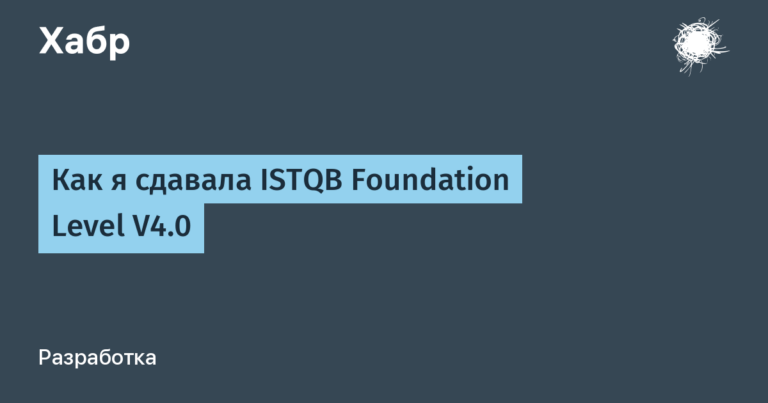Best resume I've ever seen

Let me tell you the story of the best cloud developer resume I've ever seen. It had absolutely no professional IT experience, and that's why it was great. But to fully convey the brilliance of this summary, I need to start at the beginning. From a bad smelling start.
Smelly start
When the COVID-19 pandemic hit, Daniel Singletary was fed up with his job. Working as a plumber in commercial and residential buildings in Atlanta, he spent 11-hour shifts solving some of the dirtiest, stinkiest problems in the country.
Let's take for example the day he received a call complaining about an unexpected smell in a shopping complex. Daniel and a colleague went to the scene. Yes, the smell was present, there was no mistake about it. It smelled like sewer and was very strong.
Entering the toilets for reconnaissance purposes, Daniel noticed something strange: a stream of air was blowing along the bottom of the rooms. Moving the toilet aside, he recoiled: a disgusting-smelling wind hit his nose. Later he wrote: “Imagine a powerful pump pumping sewer gas into your face.” This is not only unusual, it simply shouldn't happen. Maybe.
The sewer pipes do not blow out air. However, the entire shopping center became a gas pipeline.
How to approach setting up a shopping center?
There was nothing left but to solve the problem step by step. Over the next three days, Daniel and his partner walked around the building from opposite ends, opening and restoring every plumbing fixture they encountered. Gradually, they narrowed the list of potential sources of the mysterious air flow to two places: a hairdresser and a restaurant.
At this point the problem became extremely tricky. How to find a plumbing problem in a restaurant without closing the restaurant? Finally, Daniel came up with a bright idea: smoke testing (literally). Armed with smoke bombs, he reached the ventilation holes on the roof. Daniel reasoned: “Wherever the smell of sewer gets in, smoke can get in there too…we can only see smoke with a flashlight.”
And indeed, by following the clouds of smoke, they were able to solve the riddle. Someone connected a restaurant's stove hood to the sewer system, forcing air into the pipes. The specific problem was resolved, but Daniel's desire to leave the plumbers, and maybe even find a job where you could choose what you smelled, only grew stronger.
A Plumber's Guide to Clouds
It was around this time that we met Daniel. His roommate, who worked in IT, showed him a post I wrote about
. The challenge was created to help people get their first cloud job. I made a promise: host your resume in the cloud, and I will do my best to connect you with the right people.
Of course, there were some conditions. Your resume should indicate that you have completed an entry-level AWS certification. And the project specification requires you to become familiar with version control, CI/CD, Python, front-end Javascript, back-end cloud services, and more—a complete cloud stack. Basically, if you can pull off this project, you'll already be doing something that some professional cloud engineers aren't doing.
Daniel was not a professional cloud engineer. He had never seen YAML before. So the first thing he did was buy a white board. He called what he drew on it to understand the project a “structural drawing”; Working as a plumber, he used such documents many times. He didn't know that he was drawing a diagram of the architecture of the cloud.

Daniel's white board
Over the following weeks, Daniel forced himself to sit down at the computer after 11-hour shifts. He learned Python and Javascript in the back of his work truck. One minute he was taming sewer pipes, the next he was taming CI/CD conveyors.

We will not specify what stained his T-shirt.
Finally, he miraculously managed to complete the challenge. I personally checked his code: it was quite high quality. You can see this for yourself on his resume page. It lacks stars from the sky, but it contains the most amazing combination of personal data I have ever seen. Daniel is licensed in backflow prevention, pipe installation, residential and commercial drainage systems… oh, and four more AWS certifications.
One of the most important requirements of the challenge was to write a post about lessons learned. Daniel's post A Plumber's Guide to Cloud went viral on LinkedIn and was reposted more than two hundred thousand times. This brought him to the attention of hiring managers.
And just a month later, he started his first job as a cloud DevOps engineer. Judging by all the reviews, he copes with it very well.
Why is this resume so great?
I must say. that Daniel's success is not caused by some magic contained in the Cloud Resume Challenge. It was created by Daniel himself. He created it with his hard work, his perseverance and (which is also very important) the skills he acquired while working as a plumber.
For example, if I was a hiring manager for an infrastructure operations team, I would get quite a bit of useful information from Daniel's story about the stinking wind:
He knows how to debug. Understanding the enormous scale of the work (the bad smell throughout the building), Daniel did not mark time and did not try to apply random temporary measures. He narrowed the problem down to its root cause (air flow) and then methodically eliminated possible causes until he found a solution.
He knows how to work collaboratively. During the task, Daniel worked closely with his colleague, using a “divide and conquer” approach to speed up the “debugging” process. Pair programming will seem natural to Daniel because he is used to using a test listener to solve complex problems.
He knows how to test and observe. In fact, until I met Daniel, I didn't know that the term “smoke testing” from programming had a literal meaning related to smoke. I used to always hear it in the context of software testing. To identify the source of the problem, Daniel used tracing techniques rather than making random hypotheses.
He understands the importance of business continuity. In the process of diagnosing and solving the problem, Daniel had to keep multiple businesses running and online. He couldn't just pull a switch and shut off the water supply to the building for a few days while he figured out what was happening.
Simply put, Daniel had real-world proven operational skills; better than most university computer science graduates. What the Cloud Resume Challenge did was allow Daniel to quickly develop the technical skills he needed given his extensive experience in his craft.
What is your superpower?
Daniel's story is unique, but he is not alone. Over the past 16 months, thousands of people have tried the Cloud Resume Challenge. Most of them didn't get far; It's not easy, but that's why it's worth going through.
But the most persistent ones achieved incredible results. Career changers have made the transition to cloud work from areas such as food service, HR, retail and recruiting. And even more people have used this challenge to improve their IT skills and get better jobs in the industry.





